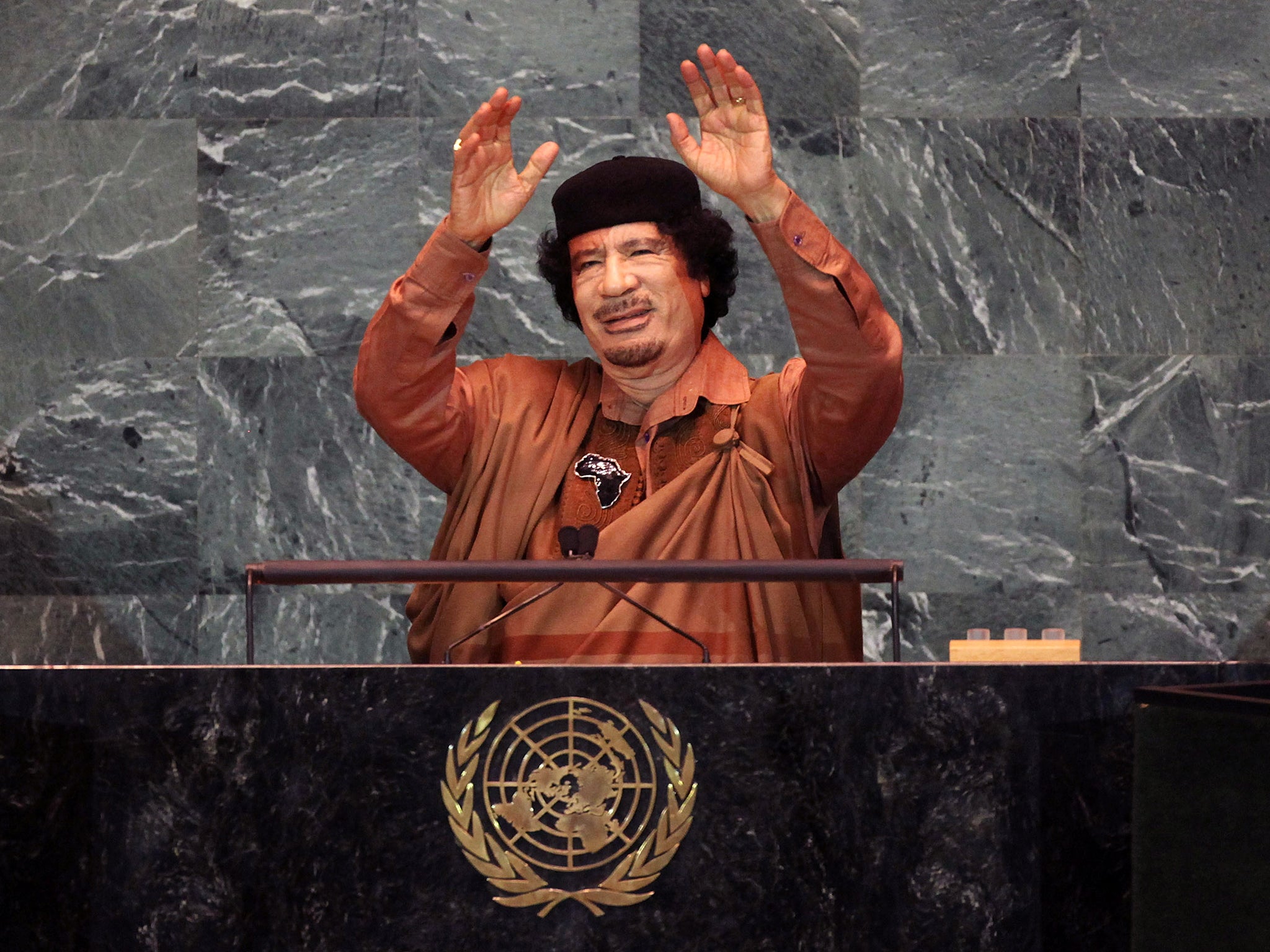Libya urges end to arms embargo
The country's Western-backed leaders say they are desperate to fight 'rampant terrorism' from Isis but international governments, including Britain's, don’t believe military action can solve the country's problems

The Western-backed Libyan government has formally requested an arms embargo be lifted so it can better tackle the growing threat from what the country’s Foreign Minister describes as “rampant terrorism”.
The request was made at an emergency session the UN Security Council. Libya has been under an UN arms embargo since 2011 when Muammar Gaddafi was overthrown, but Mohammed al-Dairi told the meeting in New York that it was time for the West to take a “decisive stance” as Isis gains a stronger foothold in the country.
“If we fail to have arms provided to us, this can only play into the hands of extremists,” he said. The plea presents the West with a dilemma. After the murder last weekend of 21 Coptic Christians, the majority Egyptians, by Isis militants in Sirte, Western governments have recognised that the instability Libya presents a new risk in the fight against Isis. Italy is especially concerned about the risk of Isis fighters joining the tens of the thousands that cross the Mediterranean to the island of Lampedusa each year.
However, Western officials equally fear that any easing of the restrictions will end in weapons falling into the hands of any number of the various militia groups destabilising Libya – or, even worse, into the hands of Isis operatives.

There is further concern any intervention that appears to support the Western-backed government will persuade more moderate Islamist fighters to join the growing band of Isis-inspired combatants.
To date, Western governments have urged a political situation to Libya’s problems. A statement issued on Tuesday by the US State Department, in conjunction with the governments of the UK, France, Italy, Germany and Spain, made clear that the prospect of military intervention was a non-starter. The statement said the “heinous murder” underlines the “urgent need for a political resolution to the conflict in Libya, the continuation of which only benefits terrorist groups, including [Isis]. The international community is prepared to support a unity government in addressing Libya’s challenges”.
And yesterday, the UK made its own position known, rejecting an easing of the arms embargo. Speaking in Algiers, the Foreign Secretary, Philip Hammond, said: “We don’t believe that military action can solve the problem in Libya.” Standing alongside his Algerian counterpart, Ramtane Lamamra, Mr Hammond added: “The Algerian position and the British position are identical... we believe in an inclusive political solution.”
Mr al-Dairi’s administration is based in the eastern city of Tobruk. Since the fall of Gaddafi, it has been fighting for control of the country against myriad armed militia groups and also against a rival Islamist administration, which last year seized the capital, Tripoli.
The political process in Libya, led by the UN’s Special Representative Bernardino Leon, is making painfully slow progress and negotiations between rival factions have resulted only in the promise of more talks.
Egypt dropped its demand for military intervention in Libya at the UN meeting, and instead supported Mr al-Dairi’s request that the arms embargo be lifted.
If Libya and Egypt cannot persuade the UN to act, the West risks being accused of allowing Isis to establish a firm footing, after it secured large areas of Syria and Iraq last year. It was a point seized on by Mr al-Diari, who told the UN meeting that the Security Council “shouldered a legal responsibility” to help Libya combat terrorism.
Egypt’s President Abdel Fattah al-Sisi, a former field marshal, fears that the vacuum will allow radical Islamism to take root on his western border and emerge in his own country. “Egypt is probably unable to commit to a major ground operation in Libya, given the cost and the logistical constraints,” says Firas Abi Ali, the head of Middle East and North Africa analysis at IHS Country Risk. “More likely Egypt will provide weapons to General Khalifa Haftar’s forces [loyal to the government]. However, it is not certain that this would guarantee his victory.”
Without European and US support, Mr al-Sisi could turn to other Middle Eastern countries. Jordan and the UAE are already taking part in air raids against Isis in Syria and Iraq. However, operating on two fronts may cause insurmountable logistical problems for both.
Join our commenting forum
Join thought-provoking conversations, follow other Independent readers and see their replies
Comments
Bookmark popover
Removed from bookmarks